Latest DePIN News
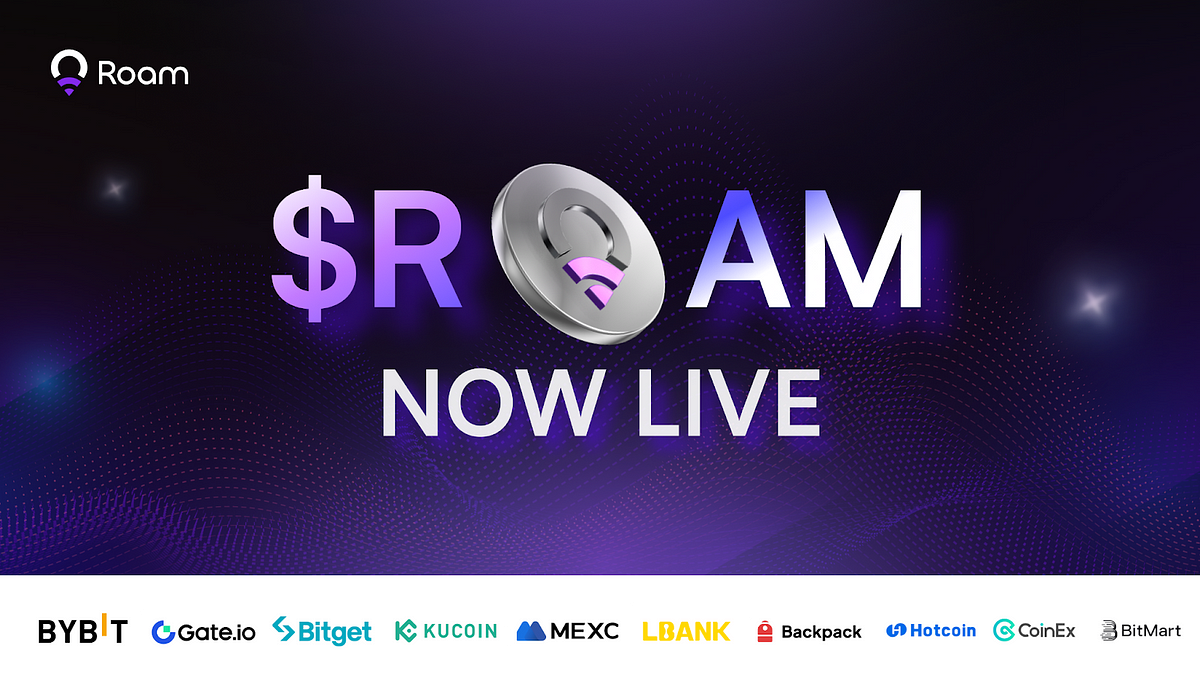
3 months ago
$ROAM Token Launches on Multiple Exchanges
On March 6th, 2025, at 10 AM UTC, the $ROAM token officially launched on ten exchanges, significantly enhancing its accessibility and liquidity for traders and investors worldwide. The exchanges where $ROAM is available include ByBit, Gate.io, Bitget, KuCoin, MEXC, LBank, Backpack, Hotcoin, CoinEx, and BitMart. Designed as a utility token, $ROAM aims to capture and increase the value of the Roam Network, with a total hard cap of 1 billion tokens. The release of these tokens will be managed through various vesting programs, ensuring community oversight and involvement in the process.
In addition to purchasing tokens on exchanges, Roam users can engage with the ecosystem by deploying a Roam Miner or participating in Roam App quests, such as adding WiFi hotspots, checking in, and referring friends to earn Roam Points. These points can be converted into $ROAM tokens by joining the “Burning” Pool on the Roam App. To further enhance the utility of $ROAM, Roam plans to introduce a staking pool and a lock-up pool, providing users with additional benefits for holding their tokens. This multifaceted approach aims to foster a vibrant community and encourage active participation.
To celebrate the Token Generation Event (TGE), Roam is launching a Community Bounty Program with a total giveaway of 100,000 $ROAM. This initiative invites everyone to support and promote the Roam Network. The listing of $ROAM is a significant milestone in Roam’s journey, reinforcing its commitment to building an Open Wireless Network. With an attractive rewards system and innovative features, Roam is poised for sustained growth and expansion in the blockchain space.

3 months ago
Hivello Integrates with Nosana to Enhance GPU Earnings and Expand DePIN Opportunities
Hivello Holdings Ltd has announced its integration with the Nosana network, a significant move aimed at enhancing passive income opportunities for users leveraging GPU resources. This partnership is particularly timely, given the increasing demand for decentralized GPU power driven by the rapid growth of generative AI applications. Justin Rosenberg, CEO of Blockmate Ventures, emphasized that this integration will not only fill a critical supply gap in decentralized computing but also boost GPU node participation, allowing users to earn higher yields on their investments.
The collaboration with Nosana positions Hivello to tap into one of the most lucrative decentralized physical infrastructure networks (DePIN) for GPU-based compute. Users can now contribute their idle GPU power to support AI model training and software development, thereby maximizing their earnings. This integration simplifies the process for users, enabling them to connect their resources effortlessly and benefit from the burgeoning decentralized ecosystem without needing extensive technical knowledge.
Domenic Carosa, Co-Founder and Chairman of Hivello, highlighted the transformative potential of decentralized infrastructure, stating that the integration with Nosana is a step toward making GPU-powered computing more accessible and scalable. As Hivello continues to expand its offerings, it aims to empower users to participate in the DePIN landscape and reap the rewards of their contributions. This strategic move not only enhances earning opportunities but also supports the growth of decentralized applications, positioning Hivello at the forefront of the evolving tech landscape.

3 months ago
Hivello Integrates Nosana to Enhance Passive Income Opportunities
Blockmate Ventures has announced a significant integration between its investee, Hivello Holdings, and the Nosana network, aimed at enhancing passive income opportunities for users. This collaboration focuses on utilizing GPU-based compute resources, which are in high demand for Artificial Intelligence (AI) and software development. Nosana is recognized as one of the leading platforms in the Decentralized Physical Infrastructure Networks (DePIN) space, allowing Hivello users to contribute their idle GPU power to a decentralized ecosystem. This partnership is expected to increase GPU node participation and provide users with automated earning opportunities through compute aggregation.
According to Domenic Carosa, Co-Founder and Chairman of Hivello, this integration marks a pivotal step towards making GPU-powered computing more accessible and rewarding. The partnership with Nosana not only enhances earning potential for users but also supports the growth of decentralized infrastructure. As generative AI applications continue to gain traction, the demand for decentralized GPU power is expected to rise, making this integration timely and beneficial for Hivello users seeking higher yields from their GPU resources.
The integration with Nosana is set to create a new passive income stream for GPU owners, further positioning Hivello within the expanding AI infrastructure market. With the automated compute aggregation capabilities now enhanced, users can easily connect their idle GPU power and maximize their earnings while contributing to the infrastructure that supports AI model training and software development. This strategic move aligns with Hivello's mission to simplify participation in DePIN networks, making it easier for anyone to earn passive income without needing extensive technical knowledge.
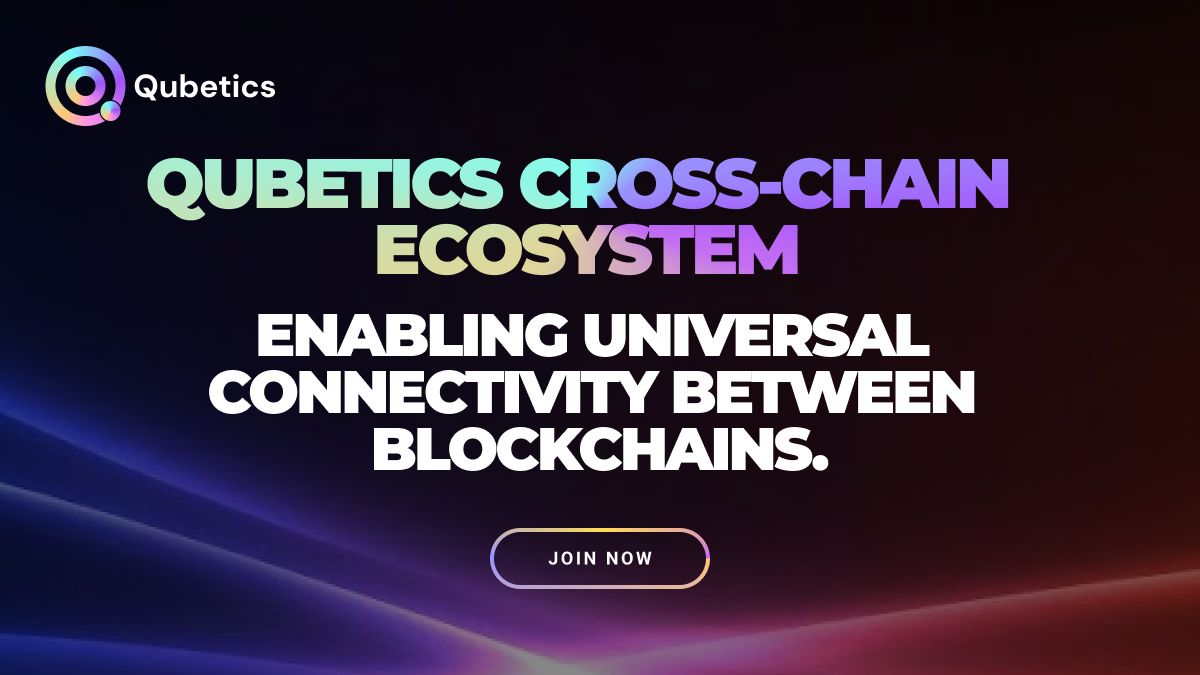
3 months ago
Innovations in Blockchain: Theta, Story (IP), and Qubetics Lead the Charge
The blockchain market is experiencing a surge of innovation, with projects like Theta, Story (IP), and Qubetics leading the charge. Theta has emerged as a significant player in the decentralized video delivery space, providing a solution for streaming giants looking to cut costs and improve quality by eliminating centralized servers. Its growing partnerships and positive price movements indicate a rising demand for decentralized content distribution, positioning Theta as a key player in the future of streaming.
On the other hand, Story (IP) is transforming the $15 trillion intellectual property management industry. By utilizing a blockchain-based framework, Story is modernizing the registration, monetization, and licensing of copyrights and trademarks. The platform automates payments and licensing through smart contracts, empowering creators and businesses with full control over their assets. This innovative approach addresses the traditional pain points in IP management, such as high legal fees and delayed royalty payments, making it a game-changer in the sector.
Meanwhile, Qubetics is set to revolutionize cross-border transactions with its blockchain-powered ecosystem. By addressing the inefficiencies of traditional international transfers, Qubetics offers instant, low-cost payments that eliminate hidden fees and banking restrictions. Its presale has already broken records, raising $14.6 million with over 495 million $TICS tokens sold. Analysts predict substantial returns on investment, making Qubetics one of the most promising crypto opportunities this year. As these projects continue to innovate, they are reshaping their respective industries and paving the way for a more decentralized future.
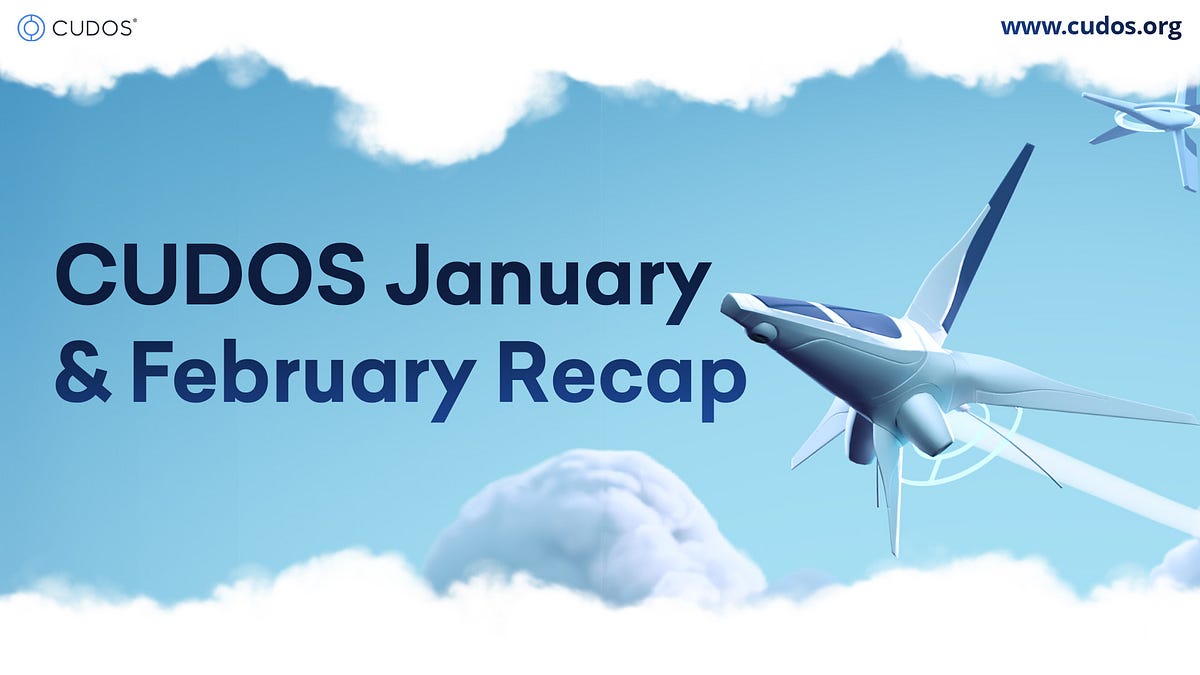
3 months ago
CUDOS Achieves Major Milestones in Early 2025
The first two months of 2025 have been transformative for CUDOS, marked by significant milestones and exciting partnerships. A key highlight was the completion of the CUDOS-to-FET token migration in January, which allowed users to fully access, trade, stake, and utilize their $FET tokens. Major exchanges such as Gate.io and Ascendex facilitated smooth swaps, ensuring users could reclaim their $CUDOS easily. Additionally, the CUDOS Intercloud platform underwent a design refresh and introduced a new referral program, enabling users to earn commissions by bringing in new users. This program incentivizes sharing referral links and offers instant payouts in FET, fostering community engagement and growth.
CUDOS has also formed a strategic partnership with Rainfall, a privacy-preserving Personal AI platform, aimed at simplifying node deployment for operators within the Rainfall ecosystem. This collaboration promises seamless node setup through CUDOS Intercloud, providing scalable and cost-effective compute solutions for Web3 AI applications. As Pete Hill, VP of Sales at CUDOS, noted, this partnership enhances the adoption of decentralized cloud solutions, which are essential for the future of AI infrastructure. Furthermore, CUDOS is actively exploring the shift towards decentralized compute for AI inference, emphasizing that smaller, efficient AI models will drive demand rather than diminish it.
The growth statistics for January and February are impressive, with CUDOS surpassing 15,000 total ecosystem users and generating over $167,000 in revenue in January alone. February continued this upward trend, with user numbers exceeding 16,000 and significant compute hours consumed. These achievements set a promising foundation for CUDOS as it looks ahead to another breakout year in decentralized cloud computing. The community is encouraged to stay connected for future updates and to participate in the ongoing conversation across various social media platforms.

3 months ago
Beamable Network Launches Website and Dashboard to Transform Decentralized Gaming
Web3 gaming is on the brink of a transformative era, and Beamable is at the forefront of this evolution. The recent launch of the Beamable Network website and dashboard serves as a pivotal resource for developers and contributors engaged in one of the most innovative Decentralized Physical Infrastructure Networks (DePIN) within the gaming sector. Beamable Network aims to empower the next generation of decentralized games by offering a scalable, high-performance infrastructure designed to facilitate seamless integration of Web3-native features into gaming experiences.
The Beamable Network website and dashboard provide a comprehensive suite of tools and resources for developers. Key features include real-time network insights that allow users to monitor performance and decentralization metrics, as well as access to developer tools such as guides, SDKs, and API documentation. Additionally, the Node Operator Dashboard simplifies the process for those contributing compute and storage resources, thereby enhancing participation in the decentralized gaming economy. This initiative underscores Beamable's commitment to creating a developer-friendly, cost-effective, and community-driven ecosystem.
As a leading DePIN project, Beamable Network is redefining the landscape of gaming infrastructure. Unlike traditional centralized services, Beamable Network is tailored specifically for the unique demands of multiplayer and real-time gaming experiences. Its Solana-based architecture ensures high-speed, low-cost transactions, making Web3 features accessible to developers of all scales. With its rapid adoption and robust economic model, Beamable Network has positioned itself among the top ten DePIN projects by revenue, reinforcing its status as a major player in the decentralized gaming space. The launch of the website and dashboard marks just the beginning of an exciting journey, inviting game developers and Web3 enthusiasts to join in shaping the future of decentralized gaming together.
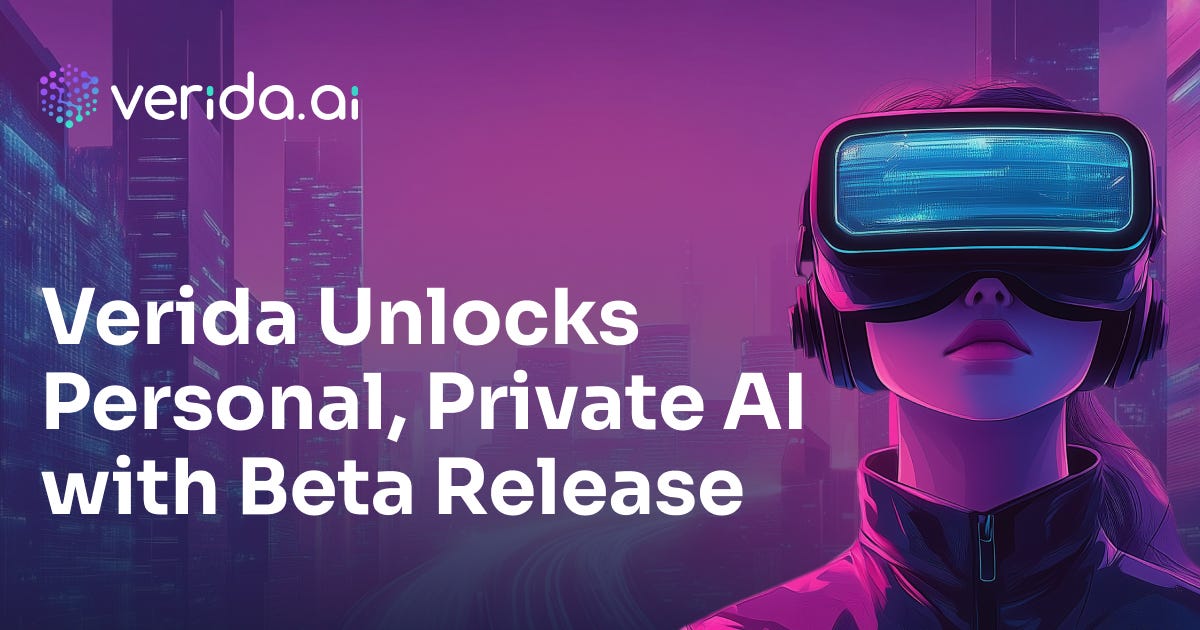
3 months ago
Verida Launches Beta for Privacy-Centric AI Platform
Verida has officially launched the beta version of its AI platform, marking a significant advancement in personal data privacy and user control. The Verida AI solution allows users to maintain ownership of their data while facilitating powerful AI integrations through secure and confidential APIs. With data fully encrypted on the Verida Network, users can confidently engage with AI applications, knowing their information remains private even during processing. This beta release is a pivotal step towards redefining user consent and driving innovation in AI technology.
Key features of the Verida AI beta include developer APIs that enable seamless integration of user-owned encrypted data into AI applications, enhancing personalization and contextualization. The platform emphasizes consent-based data access, allowing users to connect their personal data for AI inference while retaining full control over their information. The growing ecosystem of data connectors includes popular platforms like Google and Telegram, with more integrations planned. Additionally, the introduction of the “Connect Verida” button simplifies user authentication and data access, ensuring privacy-preserving personalization in AI experiences.
The Verida Token (VDA) underpins the platform, facilitating API requests and ensuring a sustainable ecosystem for developers. Verida is committed to fostering innovation through developer grants aimed at application integration and data connector development. By empowering users to take custody of their data, Verida aims to challenge the dominance of big tech in data ownership and monetization. This beta release not only enhances user control but also opens new avenues for creating hyper-personalized AI solutions without compromising individual privacy, heralding a new era of privacy-preserving AI technology.
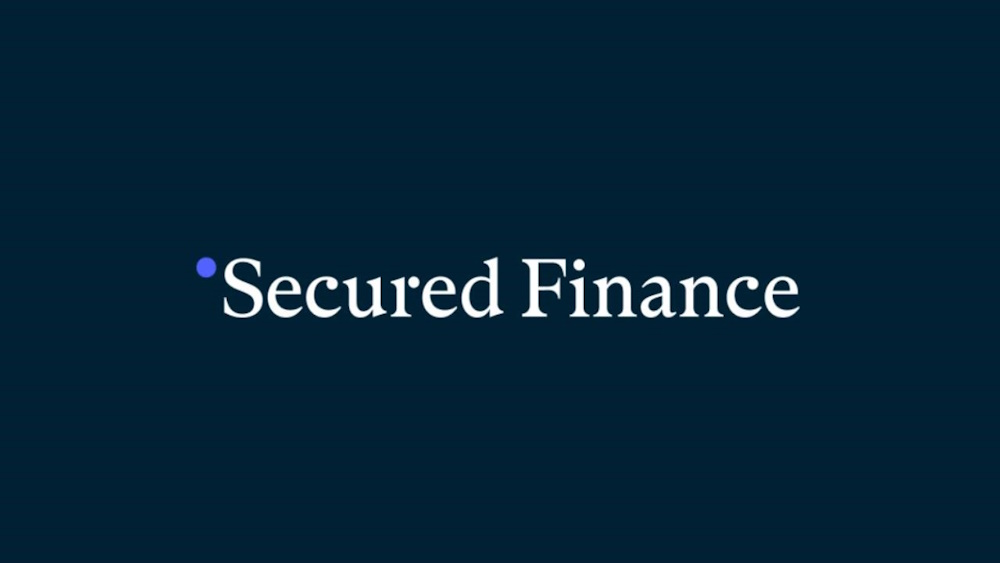
3 months ago
Secured Finance to Launch US Dollar-Dominated Stablecoin in Filecoin Ecosystem
Secured Finance is set to launch a US dollar-dominated stablecoin, named USDFC, within the Filecoin ecosystem. This initiative is anticipated to enhance the financialization of interactions with Filecoin data, drawing parallels to the impact DAI had on Ethereum's decentralized finance (DeFi) markets. According to a recent report by 10X Research, the introduction of this stablecoin is expected to unlock significant value within the rapidly growing Web3 platform, Filecoin, which is already witnessing high-level support from various foundations and an expanding list of ecosystem partners.
The 10X Research report highlights several benefits that the USDFC stablecoin could bring to the Filecoin ecosystem. Firstly, it aims to increase user adoption by providing an on-chain reserve stablecoin, making the platform more accessible to a broader audience. Additionally, it promises enhanced liquidity and stability by allowing users to transact in US dollars instead of FIL tokens. This shift could open up a universe of opportunities for users, enabling them to engage in loop trading, carry trades, and fixed-income instruments within the Filecoin network.
Masa Kikuchi, CEO of Secured Finance, expressed optimism about the potential of the Filecoin ecosystem, stating that enabling transactions in US dollars could lead to rapid growth and innovation. The success of USDFC could mirror the trajectory of DAI, which saw its backing ETH tokens grow to over seven billion dollars within two years of its launch. If USDFC achieves similar success, it could significantly alter the landscape for the Filecoin project and its community, paving the way for a new era of decentralized finance within the platform.

3 months ago
Roam to Launch $ROAM Token with Major Airdrop on Eight Exchanges
On March 6, 2025, Roam, the leading decentralized wireless network, is set to launch its $ROAM token for spot trading on eight major cryptocurrency exchanges, including Bybit, Bitget, and KuCoin. This launch will be accompanied by a significant airdrop campaign, distributing a total of 6 million $ROAM tokens to users across these platforms. The trading pair ROAM/USDT will go live at 10:00 UTC, with various incentives for early adopters, such as trading rewards and bonuses for new users. Each exchange has unique offerings, including deposit rewards and trading competitions, creating a competitive environment for users to engage with the new token.
Roam's tokenomics are designed for stability and long-term growth, with a total supply of 1 billion $ROAM tokens. The distribution includes allocations for the team, investors, and mining rewards. Notably, the token follows an exponential decay release model similar to Bitcoin, ensuring a controlled supply over time. Additionally, Roam has introduced a pilot burn mechanism to enhance community engagement and token scarcity, which has already seen a significant portion of points burned shortly after its launch.
As a pioneer in the decentralized physical infrastructure network (DePIN) sector, Roam continues to expand its global presence, boasting over 2.3 million users and more than 2 million WiFi nodes worldwide. The upcoming token generation event (TGE) is expected to be a pivotal moment for the DePIN landscape in 2025, especially as Roam seeks to drive mass adoption of Web3 technologies. With its innovative approach and strong market entry strategy, Roam is well-positioned to capture attention and foster discussions around decentralized wireless connectivity.

3 months ago
Trump's White House Crypto Summit: Key Attendees and Industry Reactions
The upcoming White House Crypto Summit, hosted by US President Donald Trump, is set for March 7 and has generated significant interest within the cryptocurrency community. Despite the event's high profile, the attendee list is notably exclusive, with only 20 to 25 invitees expected to participate. Key figures from the Presidential Working Group on Digital Assets, including Treasury Secretary Scott Bessent and SEC Chair, are confirmed to attend. Additionally, a larger reception for those not invited to the roundtable is being organized nearby, indicating the event's importance and the administration's focus on digital assets.
Among the confirmed attendees are prominent industry leaders such as Michael Saylor, Coinbase CEO Brian Armstrong, and Kraken CEO Arjun Sethi. Their participation highlights the summit's role in fostering dialogue between the government and the cryptocurrency sector. Attendees have expressed enthusiasm about the opportunity to collaborate with the Trump administration, with several sharing their excitement on social media. This summit represents a critical moment for the crypto industry as it seeks to engage with policymakers and shape the regulatory landscape in the United States.
However, not all industry leaders are represented at the summit. Ripple CEO Brad Garlinghouse has not confirmed his attendance, raising questions about the inclusivity of the event. Additionally, representatives from the Solana and Cardano ecosystems have remained silent regarding their participation, despite President Trump's recent announcement about establishing a crypto strategic reserve. As the summit approaches, the cryptocurrency community is keenly watching how these discussions will influence the future of digital assets in America.
Signup for latest DePIN news and updates